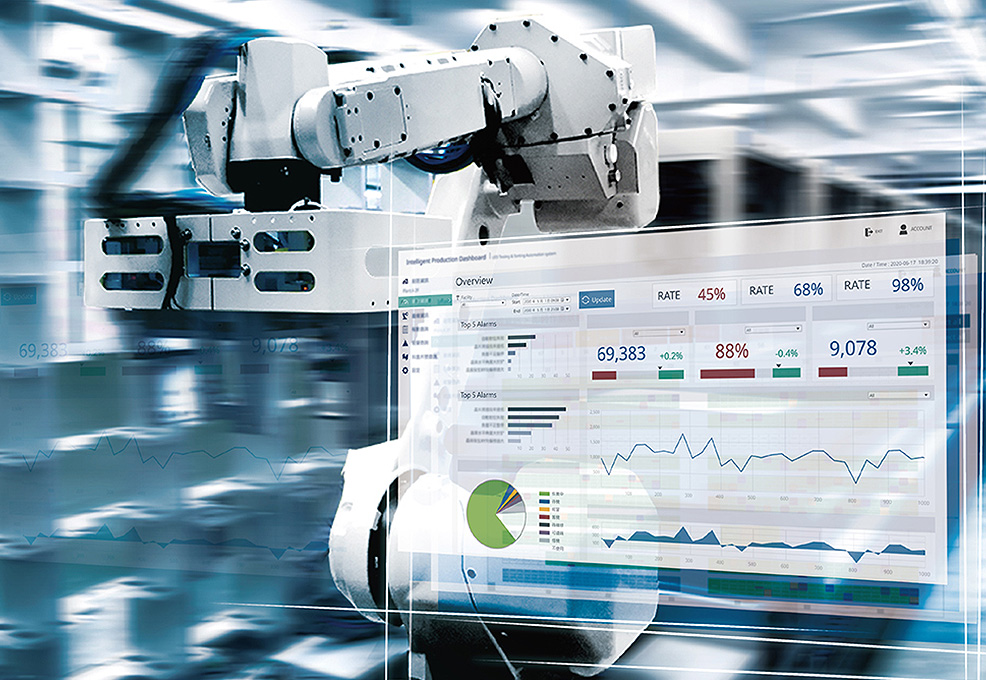iFA for Industry 4.1

Author(s)
Yun-Chin Lai & Yu-Min HungBiography
Yun-Chin Lai, FitTech Co., Ltd, Co-founder & CTO
Yu-Min Hung, FitTech Co., Ltd, Vice president , R&D divisionAcademy/University/Organization
FitTech Co., Ltd-
TAGS
-
Share this article
You are free to share this article under the Attribution 4.0 International license
- ENGINEERING & TECHNOLOGIES
- Text & Image
- August 17,2021
The term Industry 4.0 was first publicly introduced at the Hanover Fair, and soon became a core national policy of the German government. With the core value of Intelligent manufacturing, Industry 4.0 can achieve the goals of reducing manufacturing costs and improving production efficiency and competitiveness by integrating with application technologies of automation, big data, cloud computing, artificial intelligence, and IOT.
The concept of Industry 4.0 has swept the world, and has prompted other countries to propose relevant policy and development plans according to their industry background and characteristics. Thus, instead of precision machinery, Taiwan’s government proposed the concept of smart machinery, and aims to be the global smart machinery R&D and manufacturing hub. Intelligent manufacturing is now an inevitable trend, and the relevant technologies are becoming increasingly mature. The optoelectronics industry is one of the important technology industries in Taiwan, and many companies have been investing in research and development relevant solutions to respond to this evolution.
In recent years, the fourth industrial revolution has swept through all relevant industries in the world. Due to the surprise intrusion of COVID-19, many industries have been innovating to address concerns of production efficiency and the challenge of manpower shortage. In Taiwan, the decline in the birth rate is worsening at such an alarming rate that it has become a matter of national security that cannot be ignored. In the face of the unbalanced supply and demand of the labor force, such challenges will indeed impact the overall development and competitiveness of all industries. Thus, the core concepts of Industry 4.0, including automation, intelligence, and networking, are the key solutions to reduce labor demands and to improve production efficiency, enabling manufacturers to survive in the future. Currently, the semiconductor industry utilizes the communication architecture set by SEMI as the foundation of industrial automation and smart manufacturing. Other industries with similar manufacturing processes, such as the optoelectronic semiconductor industry, are also gradually introducing new upgrades into their production lines in response to future needs.
Production line in motion – Automated framework
FitTech, the leading manufacturer of LED testing and sorting equipment, which possesses its own testing and sorting OEM factories, is now presenting automated solutions for LED back-end probing, testing, and sorting, in response to the trend of Industry 4.0. The system framework consists of robotic arms with automated production lines managed by a central control system, which is capable of integrating the monitoring of the input and output of all materials. It can reduce the demand for manpower and eliminate human errors due to employees being unfamiliar with the processes. The central control system offers various features, such as data collection of the equipment, real-time monitoring, reporting, early warning, and maintenance. The friendly designs of human-machine interface and data visualization will enhance the convenience of production line management. Except for a severe system shutdown, all operations can be executed through a remote connection to the central control system, allowing clients to rule out all abnormalities at far distances, boosting production efficiency.
Predictive superpowers – The construction of an early warning system
To improve production efficiency and reduce the demand for on-site manpower, FitTech’s central control system is equipped with features including real-time online monitoring, early warning, and ruling out abnormalities. The early warning system is based on the various big data collected from the different production lines and equipment processed through an AI algorithm, conducting in-depth analysis, learning, and predictive model training as the foundation of the system. Integrated with real-time feedback from the production lines, the system can quickly analyze the data and conduct abnormality reports and early warnings, resulting in earlier detection of abnormalities and reducing the subsequent time to catch up with the production schedule. By taking the LED testing process as an example, data monitoring can be conducted on the motor and vibration parameters on the equipment’s end. When the torque and vibration signals are abnormal, an early warning will be sent. In the event of photoelectric variation in the LED testing and probing process, as the integrated AI analyzed the image data collected from the testing values, precise detection can be conducted at the optical testing system, sending early warnings for any variation, thus preventing a continuous output of the abnormal test products, significantly increasing the efficiency and reliability of the test.
The rising trend of smart manufacturing – The dream of an unmanned factory come true
As a professional equipment developer and manufacturer of the LED industry, FitTech understands that the capital expenditure of the LED industry is not as much as that of the semiconductor industry. However, entering the age of Industry 4.0, clients still require upgrades to achieve automated smart manufacturing, which also meets the development goals for equipment manufacturers. FitTech not only continues to focus on the R&D and optimization of the stand-alone hardware devices, but is also committed to the development of software systems integrated with MES operations, inter-equipment communication, big data collection, AI algorithm processing, etc. In addition to automation, FitTech also aims to equip factories with analytical capabilities that work like a brain, which will enable the clients to achieve the greatest output with the least manpower, gradually fulfilling the blueprint of a LED smart factory, realizing the vision of Industry 4.0.
STAY CONNECTED. SUBSCRIBE TO OUR NEWSLETTER.
Add your information below to receive daily updates.




